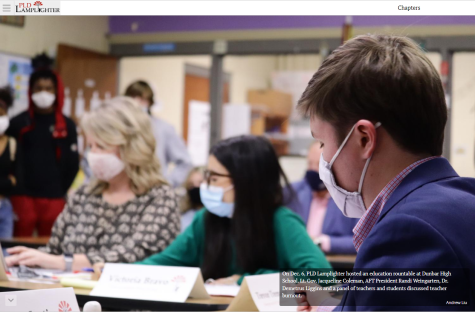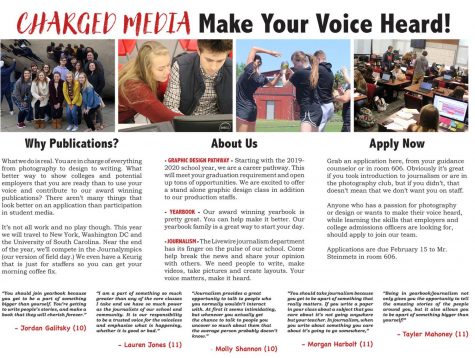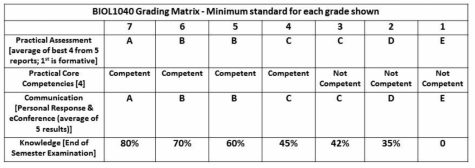KYJTA Launches Mentorship Program
Kentucky advisers can apply to get support from veteran teachers and network with other advisers in the state.
Mentorship Program Vision Statement
The reality of the high school classroom for any beginning teacher may be one of the most challenging transitions faced by teachers in their entire professional careers; however, advising student publications adds untold pressures to the new teacher’s workload.
The KYJTA Mentorship Program helps new advisers make a successful transition into teaching journalism and leading a publication by relying on the expertise of veterans who can help the fledgling adviser develop effective instructional strategies and apply theoretical knowledge.
New journalism teachers who are mentored typically receive higher ratings from their principals, develop better planning skills, handle discipline problems more effectively, conduct more productive classroom discussions, and remain in classrooms longer than teachers who are simply left to “sink or swim.” Furthermore, student publications of advisers in this program thrive with a knowledgeable, supportive adviser who helps students develop a culture of responsible journalism within the school community.
Program Goals
The program goals are to recruit and retain quality Journalism and Media Arts teachers in the state, to improve the teaching and management practices of the novice adviser, and to promote effective teaching and instruction including First Amendment rights and responsibilities. Mentees will be able to use the expertise of veteran journalism educators with extensive experience in advising who have an enthusiasm for and have been trained for mentoring. Finally, our goal with this program is to build a stronger scholastic journalism network of professionals in the state.
Mentee Selection
Applicants who are newly assigned media advisers or struggling advisers with only a year or two of experience will be given priority, especially those who have little or no experience with journalism or advising. Current advisers who are struggling with issues like censorship, assessment, program structure, and lesson planning can also apply.
The Mentor’s Role
-Facilitate the understanding of the responsibilities of a teacher based upon the professional teaching standards
-Have effective communication skills and the ability to honor confidentiality
-Guide mentees to promote instructional excellence and provide ongoing support, advice, and counsel to mentees, and serve as a model of effective teaching and publication advising
-Establish a system of ongoing communication with mentees which may include phone conversations, e-mailing, and virtual communication
-Act as coach, suggesting strategies relating to planning, time management, discipline, working with parents, etc.
-Promote awareness of diversity and inclusion issues
-Suggest procedures necessary for efficiently running a publication staff such as daily meetings, staff organization, publication organization, deadlines, staff selection, and grading
The Mentee’s Role
-Be open to receiving suggestions, support, guidance, and constructive criticism
-Establish professional goals with assistance from a mentor
-Develop a working knowledge of the state teaching standards with the intent to improve the effectiveness of instruction
-Be willing to take risks, ask questions, and try new ideas
-Establish open communication and honor confidentiality
-Be determined to remain in a journalism position and improve the quality of the media being advised
****************************
Interested teachers can apply here.




